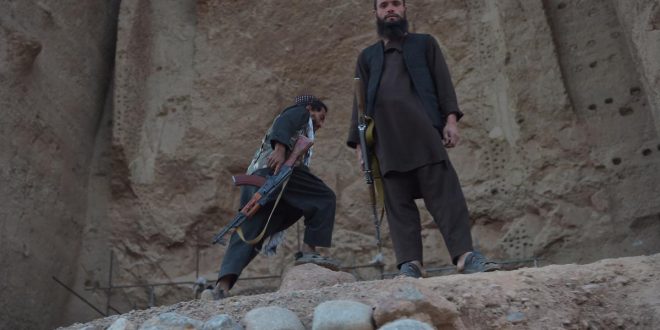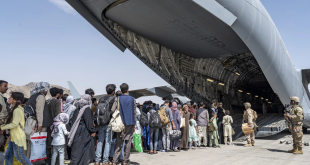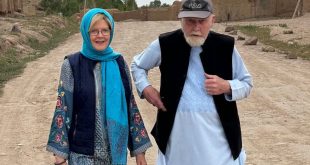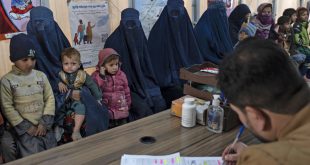At a recent Track-2 meeting for Afghan and regional delegates, a senior Taliban official was more than confident that the militant group was well on its way to global acceptance. The “Emirate” had “almost completed” the official recognition process from the international community, the official said, citing the number of countries that now operate diplomatic missions in Kabul, the number of bilateral visits Taliban delegations have made and received, the number of multilateral meetings the Taliban have been invited to in Russia and China, as well as the most recent one in Uzbekistan, where as many as 30 countries including India sent senior envoys to meet around a table with a large Taliban delegation to discuss “Afghanistan: Security and Economic Development” in Tashkent in July, reads the Hindu article.
Conditions and result
The statement by the Taliban official is a sign of the confidence that the Taliban feels that their takeover of Kabul by force one year ago is a “done deal” for the world. It is also a sign of all the wrong lessons the Taliban have taken from the reactions of the international community. Al-Qaeda chief Ayman al-Zawahiri’s killing in a recent U.S. drone strike on a home in Kabul’s posh Sherpur area is proof that the Taliban, including the Haqqanis who reportedly hosted Zawahiri, feel little pressure to keep their end of the Faustian bargain the world made with them in August 2021. Part of that bargain was the Doha agreement signed between the United States and the Taliban on February 29, 2020, which was endorsed by the UN Security Council, and premised on four conditions: Taliban guarantees that they would prevent the use of Afghan soil by international terrorist groups against the security of the U.S. and its allies; the U.S. and Coalition forces would provide a “timeline” for the withdrawal of forces; a political settlement for Afghanistan would arise from Taliban talks with the Afghan (Ghani) government, and that the Taliban would announce a ceasefire. It is fairly clear that only one of those conditions was met, i.e., the U.S. and others withdrew all foreign troops from Afghanistan by August 31, 2021.
As a result, the first lesson the Taliban learnt was that they did not need to keep any promises to the U.S. or to the international community.
Apart from the three in the Doha agreement that the group disregarded before the ink on the agreement was even dry, the Taliban went on to make and break several others: taking Kabul and the rest of the country by force; giving key portfolios to those still on the United Nation’s designated terrorist list (for example, Sirajuddin Haqqani is Afghanistan’s Acting Interior Minister), and refusing to form an inclusive government that brought in women, minorities, or even members of non-Taliban groups.
Broken word on rights
Perhaps the most egregious example of their broken word is the one given to Afghanistan’s young girls — female teenage students between Classes 6 and 12 are still not allowed to go to school. Instead, each week brings one more Taliban diktat aimed at keeping women out of an education, out of jobs, and out of sight in particular, with even female television anchors being forced to cover their faces. Other new restrictions mandate that women must be “escorted” in public at all times, ensuring that Afghan women, who are known for their vibrant contributions over the past two decades in every field, are being effaced from society, without a pushback from any quarter.
The second lesson the Taliban have learnt is that stability and the lack of violence beget international complacency. As the chief insurgent force in Afghanistan, the Taliban wielded the “violence veto” in all talks post 2001. As the default power in Kabul now, they have found that stopping the violence helps other countries forget what they have suffered in the past. Proof comes from the number of countries now operating diplomatic missions in Kabul, despite the fact that no country recognises the Taliban. While China, Russia, Iran and Pakistan never shut their missions when the Taliban took over, those who have reopened missions subsequently include most Central Asian countries, the Gulf states including Saudi Arabia, Qatar and the United Arab Emirates, Turkey, Indonesia, and now India.
America has other problems
The next lesson the Taliban have learned is that the U.S. and its allies have bigger problems to deal with now, and interest in Afghanistan, much like in the 1990s, has ground to a trickle. It is clear that as the U.S. squares up to face its “twin challenges” from Russia and China, made more difficult by the war in Ukraine and the stand-off in Taiwan, it has little “bandwidth” for other issues. A case in point is Myanmar, where the military junta overthrew the elected government in February 2021, imprisoned most of the political leadership including Nobel Laureate Aung San Suu Kyi, and is now executing opposition activists at will despite entreaties from the world. It is clear that concerns about human rights, democracy and the will of the people hold diminishing sway, even as global leaders pay lip service to democracy summits, religious freedom conferences and UN Security Council resolutions.
India’s record
Even by such poor global standards, India’s record on the Taliban government has been disappointing. In 1996, the government in New Delhi — a weak and fractious coalition in New Delhi — had formulated a three-pronged policy that was fairly clear: India would have no truck with the Taliban, would support the Northern Alliance forces led by Ahmad Shah Massoud by allowing their leadership to come to India with their families, and extended shelter to more than 12,000 Afghan refugees who were able to flee Taliban rule. This policy held India in good stead for the post-Taliban period 2001-2021, when India was able to build a strong relationship with Afghanistan, became its first strategic partner, crafted a series of important infrastructure initiatives including Parliament, the Afghan-India Friendship (Salma) dam and the Zaranj-Delaram highway, and educated thousands of Afghan students, doctors and military cadets.
The relationship India has held with Afghans since August 15, 2021, however, has been hard to define or fathom. Addressing a Cabinet Committee on Security two days after the Taliban takeover, Prime Minister Narendra Modi ratified the decision to shut down the Indian Embassy in Kabul, but said that along with Indian citizens and needy Sikh and Hindu minority community members, India must provide “all possible help to our Afghan brothers and sisters who are looking towards India for assistance”.
That promise, unfortunately, was high on rhetoric but hollow in reality. India has allowed only citizens and minorities with pre-existing long term visas to enter India, while closing the door to all others. By cancelling all visas that had been issued earlier to Afghan citizens, including government officials, journalists and other frequent visitors, India has turned friends into unwanted entrants. While a total of 60,000 visa applications were received by the Ministry of External Affairs and the Ministry of Home Affairs under the newly created “e-Emergency X-Misc” visa, only a paltry 200 were disbursed by December 2021, and a few dozen more in 2022.
Rather than a consistent stand on ties with the Taliban, the Modi government has now opened talks at the highest levels, with senior Indian officials even meeting Sirajuddin Haqqani, the man leading the group responsible for multiple attacks on Indian establishments, including the deadly bombing of the Indian embassy in Kabul. It is particularly perplexing that India has taken this stand, given its refusal for talks with Pakistan over the terror issue. Even more puzzling, that when India chose to negotiate with Pakistan, it was to send wheat aid to Afghanistan, ignoring the well-established route via Chabahar that it had used in the past.
Significantly, India has joined the list of countries opening missions under the Taliban regime, but has yet to post a diplomat who can restart the process of consular and visa operations. The “technical team” in Kabul is, therefore, essentially a security outpost; a halfway house that deals with the Taliban leadership, but not the people. If the purpose of this mission was to prove itself as a friend to the Afghan people by re-establishing the embassy, then it falls short of the needs of thousands of students waiting to return to India for their studies, patients needing medical care, or a political leadership needing a platform to fight the Taliban’s vision. New Delhi’s moves, like those of the international community, have in fact allowed the Taliban to learn the worst lesson of all, one year after they entered Kabul: that in a world where principles are in short supply, short-sighted tactics, not strategic vision will decide the future.
 Afghanistan Times
Afghanistan Times




